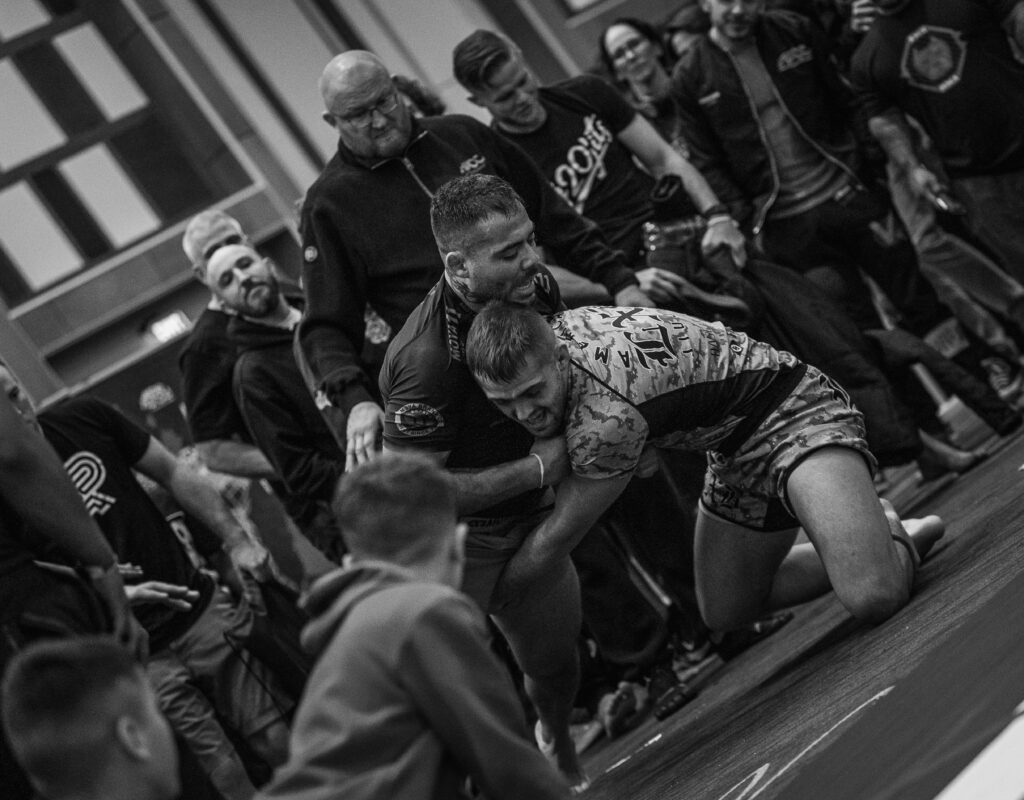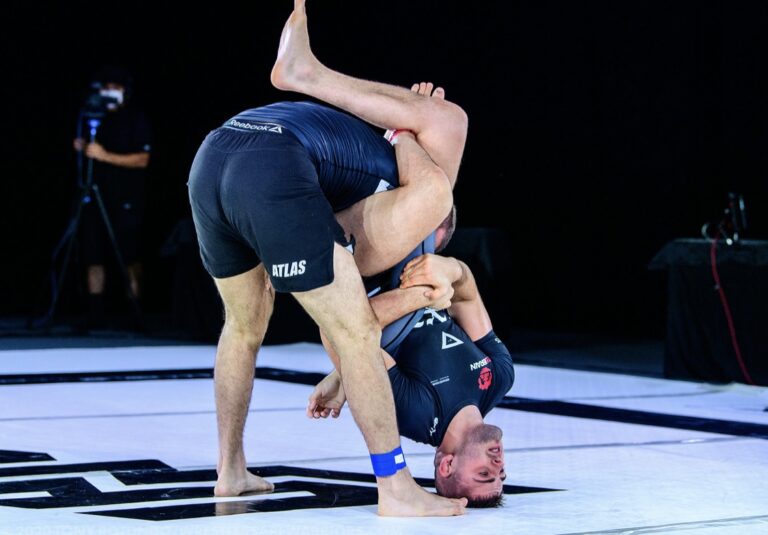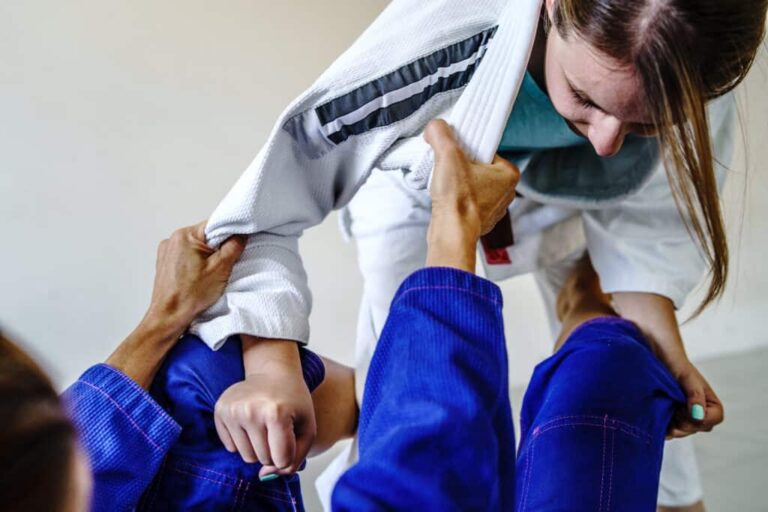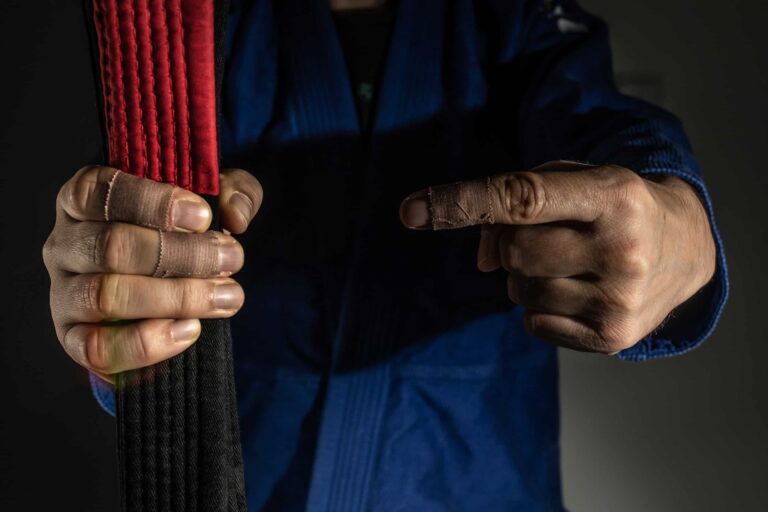Should I compete in BJJ? | Tips and Secrets to Success

When it comes to answering the question of whether or not to compete in jiujitsu, it ultimately comes down to trusting your gut & advice from your coach and trusted sources.
Coming off a recent, solid performance & winning my second ADCC west coast trials win, I have received many questions about competing and its benefits. As I have been competing for 14, almost 15 years, many wonder what I do to calm my nerves, what is my mindset going in and strategy…the list goes on.
With that said, today’s article is going to cover some basics on what you need to know about competing, the prep that goes into it, and nevertheless, whether YOU should compete in a jiujitsu tournament as well.
Why Should You Compete?
Starting off, why you should compete is probably one of the most popular questions I receive daily, whether it’s from my students in the gym or in comment sections across social media. Overall, I highly encourage everyone to try it at least once, as competing in jiujitsu is great for getting you out of your comfort zone and can help you improve your skills at a faster rate.
A lot of times “hobbyist” mentality can only take your training so far, and it can be easy to plateau since you’re training with the same set of teammates day in and day out. With that being said, one of the first things I notice in a student when they sign up for a competition, is that they start taking training more seriously, their rounds become more competitive, and are just more intentional. Not only is this important to ensure you do well in your competition, but the commitment to training helps your jiujitsu improve overall.
Competing is also a great way to learn more about yourself. Based off personal experience and watching my students, competing in jiujitsu can transform your personality and mindset as you make small alterations in your daily life to ensure competition day goes well. Technically even if you lose your match, just taking into consideration the changes you made such as diet, sleep, and dealing with pre-comp. nerves; it all helps make you both a better person and practitioner.
How to Approach Mindset And Nerves
Now that we’ve covered WHY you should compete, let’s hop into one of the first things I believe is crucial when it comes to competing well; handling mindset and nerves. This is an area I not only see new practitioners struggle, but experienced professional athletes as well.
I have seen numerous athletes’ moments before a match, start to have a panic attack or even make themselves sick from the nerves getting to them. While this is a common occurrence, it is important to get these things under control as the nerves can cause you to crumble under pressure and ultimately, under perform, which nobody wants to happen.
So how do you handle these nerves and get into a healthy mindset? Generally, whenever I’m going into a competition I like to remind myself of all the hard work I’ve put in. I know if I have a solid training camp, I have done everything I can on my side and the rest is up to God. All you can do is stay focused and present.
Training Leading Up to Competition
Switching over to the more physical aspect of things, once you’ve made the decision to compete, I believe it is very important to make a calculated effort in structuring your jiujitsu training. From years of experience, I have found that my training is naturally going to look different when I’m on a break versus in training camp.
Although jiujitsu training is fun when you’re having a good time with your buddies and maybe going for crazy submissions, sometimes it is not the most effective method for competing well. Instead, I have a more thought-out approach to training leading up to competitions. For example, I always like to consider the rank/skill level of a partner before I roll with them, as this is going to dictate what that round is going to look like.
If you are rolling with a lower-level partner, then maybe focus on more of your weak points and training from bad positions. On the other hand, if you are rolling with same rank or higher you should 100% be taking those training rounds seriously and keeping a mental scoreboard, or someone watching the round, of the points scored and such. Little things like this are going to help you get in routine with thinking about the competition score system, as well as assist in your training progression since you are being mindful about what you can gain from every roll.
Here is even a “day in the life” vlog for more of an inside scoop on how a full day of training looks for me when I am prepping for competition.
Learning The Rules
Speaking of the competition score system, my last piece of advice if you are thinking about competing or are trying to improve your strategy for competition is learn the rules. I cannot express how many times I have watched people lose matches simply because they either didn’t know the rules or didn’t train under that rule set in the gym.
First step to learning the rules is have someone mat side with you who is educated on the ruleset. Have them hold you accountable during training rounds, awarding score, and keeping track of time. This will teach you the rules, while being able to focus on your technique and quality of training.
Once you’ve learned the rules, you can always keep track of the score in your head without someone mat side. It can also be helpful to sit down and study the rulesets to familiarize yourself with them. Here are two of the most common competition score systems for you to take a look at.
Conclusion
On a whole, my hope is that you can find your own why when it comes to competing and feel more confident on handling nerves and training leading up to an event. These are just a few basic tips on my experience with competition prep, however, for a full how to guide, you can subscribe to my email list below to get the rest of my favorite tricks to success.





